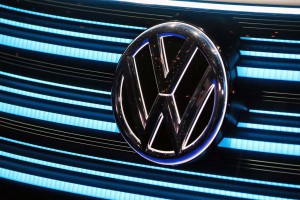The diesel emission scandal is likely to hammer Volkswagen to come, the maker facing a new federal lawsuit and at least 450 civil cases filed by owners – but the impact is already being felt by an automaker that entered 2015 literally on top of the world.
VW today revealed it sold 9.93 million vehicles through its varied brand portfolio last year, a decline of 2% worldwide. Dropping below the 10 million mark comes as more than just a psychological setback. It also means the German maker will fall into second, and possibly even third, place in the global automotive sweepstakes once its rivals all tally up their numbers.
And VW has rapidly been losing momentum, December sales slipping 5.2% worldwide and 10% in the American market – where it was sued by the U.S. Justice Department on Monday. The maker could face as much as $20 billion in fines for violating the Clean Air Act by using a so-called “defeat device” to illegally pass emissions tests.
(For more on the Justice Dept. lawsuit, Click Here.)
For the first half of 2015, VW had surged into the lead, nudging aside global sales leader Toyota Motor Co. If it had been able to maintain that momentum it would have been a doubly significant achievement. While former Volkswagen AG CEO Martin Winterkorn had targeted sales leadership, he wasn’t expecting to gain the lead until 2018.
Despite the downturn, Winterkorn’s success, Matthias Mueller, sounded an upbeat note in a company statement, saying, “Delivering almost 10 million vehicles is an excellent result, particularly in view of the continued challenging market situation in some regions as well as the diesel issue in the final quarter of last year.”
The new CEO noted that “developments” in two recession-racked markets, Brazil and Russia, had a “noticeable impact” on sales, VW made “advances” in a European market finally showing signs of an upturn after a long economic recession.
But the global economy was only one of the factors contributing to VW’s problems. End-of-year sales were seriously hurt by the hit to the company’s image from its diesel cheating scandal. The maker rigged electronic control systems for vehicles using several diesel engines so they would reduce NOx output when undergoing emissions tests.
A total of 482,000 vehicles equipped with the flawed 2.0-liter diesel were sold in the U.S. since the cheating began; a smaller number of vehicles equipped with an illegally modified 3.0-liter diesel were also sold in the U.S.
VW is beginning fixes in much of the rest of the world – a total of 11 million vehicles with the 2.0-liter diesel must be repaired. But the automaker has not yet reached a settlement with the Environmental Protection Agency on a fix in the United States, where NOx emissions standards are tougher. Until then, it also is unable to sell new diesels in the States. They had accounted for a quarter of the maker’s American volume in 2014.
(VW may buy back more than 100,000 cars in wake of diesel emissions scandal. Click Here for more.)
While VW has its problems, so does its arch-rival Toyota. The Japanese maker has been struggling in several key markets, notably China and Europe and, as a result, its volume was off 1.5% for the first three quarters of the year and likely down for all of 2015 – though it is still expected to have topped the 10 million mark for the second year in a row.
General Motors was off 1.3% for the first three quarters, meanwhile, but is expected to stay in third place, again, behind Toyota and VW, once all three makers tally up their 2015 totals.
VW operates a dozen different car brands from base-level Seat and Skoda, to ultra-premium marques Bentley, Bugatti and Lamborghini. It was the flagship VW brand that has been hit hardest. Its sales slipped to 5.823 million last year, a 4.8% decline.
Audi, the mid- to premium-range luxury division, has largely sidestepped the diesel scandal, even though several of its models are affected. Audi actually reported an increase in U.S. sales last month, and an all-time record for the year.
(VW brand boss Diess says he’s focused on fixing diesel problem, not the costs of doing so. For more, Click Here.)


